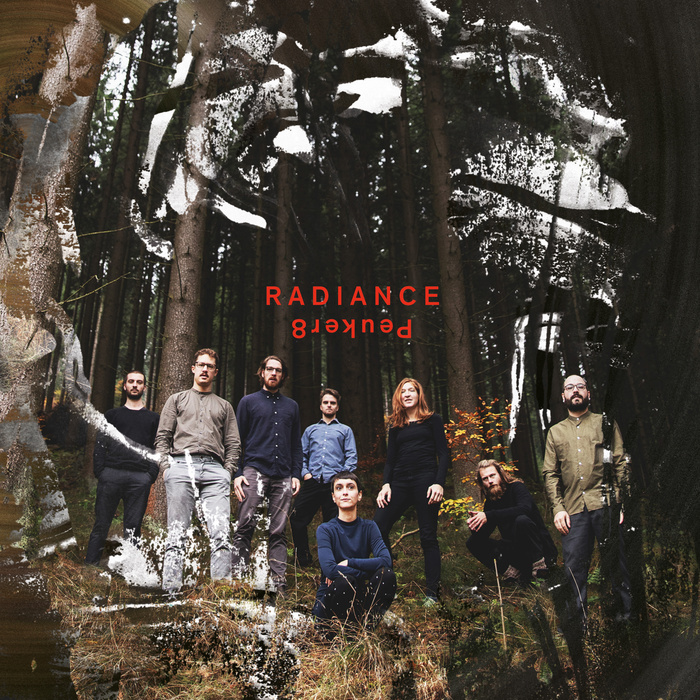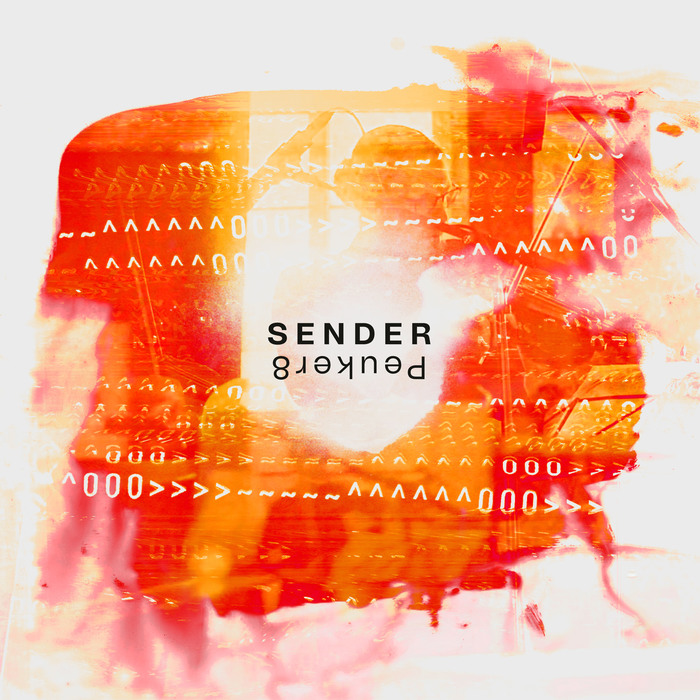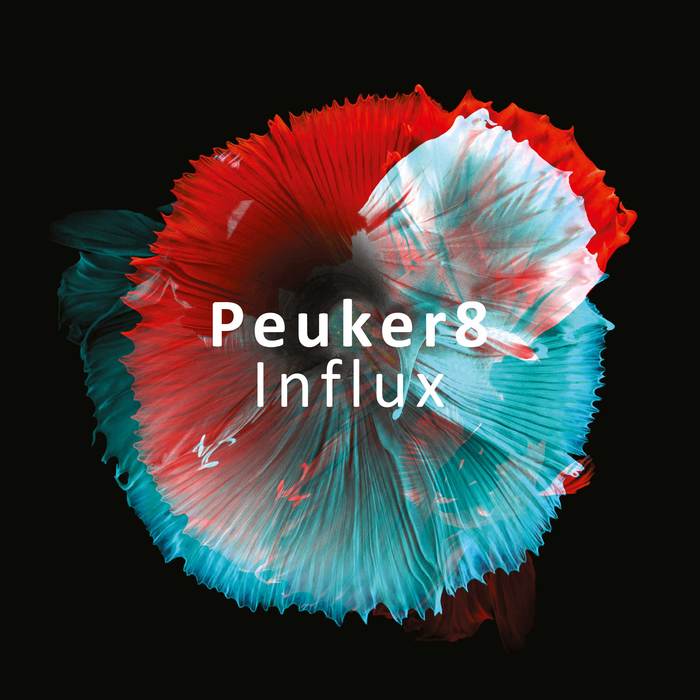Radiance von Peuker8
2019 WhyPlayJazz (WPJ051), CD + MP3 Album Download
Titelverzeichnis
Besetzung
Paul Peuker (guitar/composition), Marius Moritz (piano), Mark Weschenfelder (saxophone/clarinet), Alina Gropper (violinquinton), Filip Sommer (violaquinton), Elisabeth Coudoux (cello), Eugen Rolnik (bass), Florian Lauer (drums), Konstantin Ingenpaß (vocals on "The Core" and "Requiem (Radiance III)")
Produktionsdetails
Recorded, produced and mixed by Max Trieder at Hirschberg Studio, Oberkirchen and Das Dur, Berlin. Mastered by Henning Birkenhake at Eastside Mastering, Berlin. Photos by Dovile Sermokas. Design by Michael Schultz.
„Radiance“ ist ein Solitär. Mit über weite Strecken durchkomponierter, immer neu nach oben strebender Vitalität positioniert sich diese kraftvoll mahnende Musik neben jedem Mainstream. Ihre eingängige Sinnlichkeit büßt sie deswegen nicht ein. Im Gegenteil! Hymnisch drängend verzichtet diese Kunst auf einfache Antworten und formuliert Größeres, das den Hörer über den Moment hinaus in ihren Bann zieht.
Peuker8 ist in der kurzweiligen Fusion der Stile weit jenseits des bloßen Modern-Jazz-Kontextes etwas sehr Besonderes, eine potenzielle Festivalband, die mit flüssiger, nicht aufgesetzter Tiefenschärfe besticht. Paul Peuker hat auf seinem dritten Album mit Peuker8 seine dringliche und temperamentvolle Kunst, kurzweilig für verschiedene Stimmen und Instrumente zu arrangieren, mit beeindruckender Konsequenz weiterentwickelt und vervollkommnet. „Radiance“ ist ein Konzeptalbum. Leitmotive kehren immer wieder, und der mit „Glanz“ oder „Ausstrahlung“ zu übersetzende Titel bringt es auf den Punkt. Diese Musik ist durchzogen von einem inneren Leuchten, von einer anstrengungslos wirkenden Spontaneität gleichberechtigter Stimmen, die sich verzahnen, emporschweben und erstrahlen. Peukers Kunst braucht dazu nicht den schnellen Effekt oder die sich anbiedernde Geste. Sie stemmt sich gegen die Verkürzung und Simplifizierung der Klicks und des Zappings, um dagegen ein Denken in größeren Bögen und Entwicklungen, etwas Nachhallendes, tiefer Gehendes zu kreieren. Wer will, kann Spurenelemente der skandinavischen Großformationen Trygve Seims finden, Verweise auf Henryk Góreckis 3. Sinfonie oder Gustav Mahlers orchestrale Breitwandbilder, auf dessen Zweite sich hier mit einem abgewandelten Text aus „Des Knaben Wunderhorn“ bezogen wird. Mit der zweimaligen Integration des Baritons Konstantin Ingenpaß positioniert sich Peuker provokativ und thematisiert drängende Themen unserer Zeit: „sterbend nimmt die Welt unser Treiben wahr / jedoch wird sie es sein, die bleibt“ …
Reviews
Peukers Oktettmusik ist eigenständig und merkwürdig. Sie ist sperrig, sie ist ambitioniert, sie ist großartig.
Certainly one of the things that recommends Peuker's band is that no other sounds quite like it.
[...] ein Unikat in der zeitgenössischen deutschen Jazzszene.
[Die 8 Musiker*Innen von Peuker8] wissen schon, worauf es ankommt. Nämlich die Entfaltung einer Strahlkraft, die den Zeitgeist kupierter Aufmerksamkeitsspannen, des Schnellen, nur vermeintlich Hellen, mit ganz anderen Spannungsverhältnissen überwölbt.
Einem Wunsch nach Nachhaltigkeit, der [...] nach dem Kern der Sache fragt.
Throughout Radiance, Peuker and company manage to push the boundaries of chamber rock by achieving a level of unpredictability and rawness that goes beyond that moniker.


